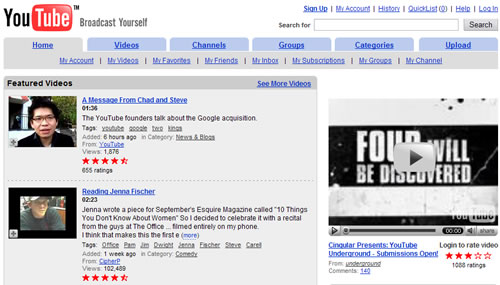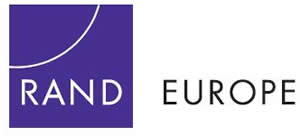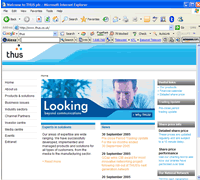 Carphone Warehouse have jumped into the big boy broadband rankings with its acquisition of the UK’s third-largest Internet provider, AOL UK.
Carphone Warehouse have jumped into the big boy broadband rankings with its acquisition of the UK’s third-largest Internet provider, AOL UK.
Shelling out a cool £370m for the operation, Carphone Warehouse will inherit AOL’s 2.1 million UK customers, of which 600,000 are on dial-up, with the remaining 1.5 million using broadband connections. It’s four years ago that AOL announced their broadband pricing.
Under the deal, AOL will be keeping its (somewhat inappropriate) name – short for ‘America On Line’ – with the new owners retaining the US firm’s pricing policies.
(When AOL first hit the shores of Blighty, we did wonder if they’d change their name for the UK market, but we figured that UK On Line (UOL) sounds like someone being sick, and Britain On Line (BOL) would just invite the addition of ‘LOCKS.’)
 Retaining AOL UK’s management and infrastructure, Carphone Warehouse said that it’s funding the acquisition of its shiny new toy through an extension of its existing debt facilities.
Retaining AOL UK’s management and infrastructure, Carphone Warehouse said that it’s funding the acquisition of its shiny new toy through an extension of its existing debt facilities.
Although AOL UK is being sold by its American parent company Time Warner, the deal will see AOL continuing to provide co-branded portal, content and other audience services, as well as taking care of online advertising sales through a revenue-sharing agreement.
Carphone Warehouse head honcho Charles Dunstone announced that the deal was “transformational for our broadband business,” adding that they had “accelerated their customer service recruitment plans and incurred additional wholesale broadband costs.”
 “The joint development of AOL’s already successful audience platform will bring us new advertising and content revenues in a proven and low risk manner,” he added.
“The joint development of AOL’s already successful audience platform will bring us new advertising and content revenues in a proven and low risk manner,” he added.
Ol’Charlie boy’s been getting in the neck recently, after Carphone Warehouse’s TalkTalk service was the subject of a damning expose on the BBC’s Watchdog programme.
The show had been inundated with complaints after the company failed to deliver on its promise on ‘free’ broadband, and Dunstone has claimed that the strong demand has cost the company £20m more than originally expected.
The AOL deal sees the Carphone Warehouse crew slip into third place in the UK league table of residential Internet providers, with NTL the current leaders with 2.9 million home customers, followed by BT on 2.2 million.
 As we\\’d
As we\\’d 
 In true online video blog style, the announcement was made by Mr Diddy (not one of
In true online video blog style, the announcement was made by Mr Diddy (not one of  Details of the deal between Mr Diddy and Burger King haven’t been disclosed, but we’d imagine that it’s going to be worth more that a couple of orders at their stores, even if his entourage are ordering large.
Details of the deal between Mr Diddy and Burger King haven’t been disclosed, but we’d imagine that it’s going to be worth more that a couple of orders at their stores, even if his entourage are ordering large. We attribute much of Mr Diddy’s knowledge and acceptance of YouTube down to
We attribute much of Mr Diddy’s knowledge and acceptance of YouTube down to  Ofcom has announced that Ed Richards is taking over the uber-communications agency CEO reigns, effective today.
Ofcom has announced that Ed Richards is taking over the uber-communications agency CEO reigns, effective today. * Ensuring that Ofcom’s voice is heard on key issues. Ofcom to its credit, tend to think and act in an evidence-based manner, but are surrounded by a regulatory environment which is highly politicised. This has been particularly true in both the media and new media, an area where Stephen Carter’s Ofcom often produced good thinking, but was unable to translate that into actual policy (eg, BBC charter review). Richards comes from the political world, and this might benefit Ofcom in that respect.
* Ensuring that Ofcom’s voice is heard on key issues. Ofcom to its credit, tend to think and act in an evidence-based manner, but are surrounded by a regulatory environment which is highly politicised. This has been particularly true in both the media and new media, an area where Stephen Carter’s Ofcom often produced good thinking, but was unable to translate that into actual policy (eg, BBC charter review). Richards comes from the political world, and this might benefit Ofcom in that respect. Two UK lads, Gary and Ash, have taken upon themselves to go into Internet chats, posing as a 13 year old girl and converse with various men who happened across them.
Two UK lads, Gary and Ash, have taken upon themselves to go into Internet chats, posing as a 13 year old girl and converse with various men who happened across them.
 Millions of game-toughened poker faces are showing signs of impending blubbering as the US Congress unexpectedly passed anti-online gambling laws last week.
Millions of game-toughened poker faces are showing signs of impending blubbering as the US Congress unexpectedly passed anti-online gambling laws last week. The new laws will wipe out US revenue for London-based online-gaming companies, with PartyGaming saying that they’d suspend business with US residents as soon as the law takes effect.
The new laws will wipe out US revenue for London-based online-gaming companies, with PartyGaming saying that they’d suspend business with US residents as soon as the law takes effect. “After taking extensive legal advice, the Board of PartyGaming Plc has concluded that the new legislation, if signed into law, will make it practically impossible to provide US residents with access to its real money poker and other real money gaming sites. As a result of this development, the Board of PartyGaming has determined that if the President signs the Act into law, the Company will suspend all real money gaming business with US residents, and such suspension will continue indefinitely, subject to clarification of the interpretation and enforcement of US law and the impact on financial institutions of this and other related legislation.”
“After taking extensive legal advice, the Board of PartyGaming Plc has concluded that the new legislation, if signed into law, will make it practically impossible to provide US residents with access to its real money poker and other real money gaming sites. As a result of this development, the Board of PartyGaming has determined that if the President signs the Act into law, the Company will suspend all real money gaming business with US residents, and such suspension will continue indefinitely, subject to clarification of the interpretation and enforcement of US law and the impact on financial institutions of this and other related legislation.” The BBC has signed a Memorandum of Understanding with Microsoft. Areas of the potential investigation and collaboration that the non-exclusive agreement includes, covers “search and navigation, distribution, and content enablement” (what ever that means in English).
The BBC has signed a Memorandum of Understanding with Microsoft. Areas of the potential investigation and collaboration that the non-exclusive agreement includes, covers “search and navigation, distribution, and content enablement” (what ever that means in English). Microsoft has been creeping into the BBC’s online media for a long time now. It first came to light when we broke the story near the start of 2004 that the
Microsoft has been creeping into the BBC’s online media for a long time now. It first came to light when we broke the story near the start of 2004 that the  The UK’s broadcasting and telecommunications regulator OFCOM last week made clear its opposition to potential EU regulation. It fears it will straight-jacket the emerging new wave industries aiming to propel high tech growth in the EU zone over the coming years.
The UK’s broadcasting and telecommunications regulator OFCOM last week made clear its opposition to potential EU regulation. It fears it will straight-jacket the emerging new wave industries aiming to propel high tech growth in the EU zone over the coming years. The study also makes clear its’ worries that excessive regulation could mean that countries outside of the EU would benefit from the expected growth in non traditional delivery of multimedia content, before it has established itself in Europe.
The study also makes clear its’ worries that excessive regulation could mean that countries outside of the EU would benefit from the expected growth in non traditional delivery of multimedia content, before it has established itself in Europe. U.S. Internet advertising revenue has hit a new record high of nearly $8 billion for first six months of the year, increasing by a money-spinning 37 per cent, according to a new study.
U.S. Internet advertising revenue has hit a new record high of nearly $8 billion for first six months of the year, increasing by a money-spinning 37 per cent, according to a new study. The IAB/ PricewaterhouseCoopers figures show that Internet advertising revenue totalled nearly $4.1 billion in the last quarter, representing a thumping a 36 percent increase over the same period last year, and up a healthy 5.5 percent over the first quarter of 2006.
The IAB/ PricewaterhouseCoopers figures show that Internet advertising revenue totalled nearly $4.1 billion in the last quarter, representing a thumping a 36 percent increase over the same period last year, and up a healthy 5.5 percent over the first quarter of 2006. THUS, the communications provider that owns the Demon brand has announced it has become the preferred supplier for HSBC in the UK. The contract is expected to be around £50m plus over 5 years.
THUS, the communications provider that owns the Demon brand has announced it has become the preferred supplier for HSBC in the UK. The contract is expected to be around £50m plus over 5 years. THUS also recently acquired Your Comms (a business telco based in the North of England) and Legend, a smallish ISP with a portfolio of VoIP products. Other acquisitions must be on their mind.
THUS also recently acquired Your Comms (a business telco based in the North of England) and Legend, a smallish ISP with a portfolio of VoIP products. Other acquisitions must be on their mind.